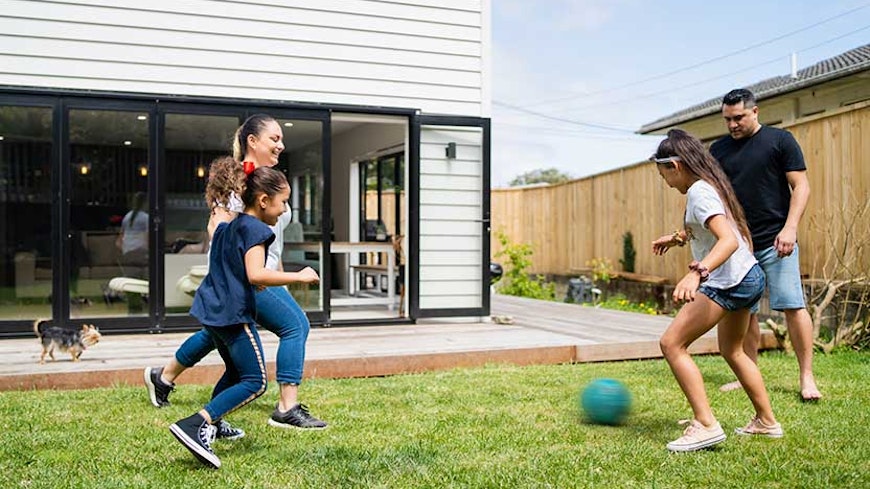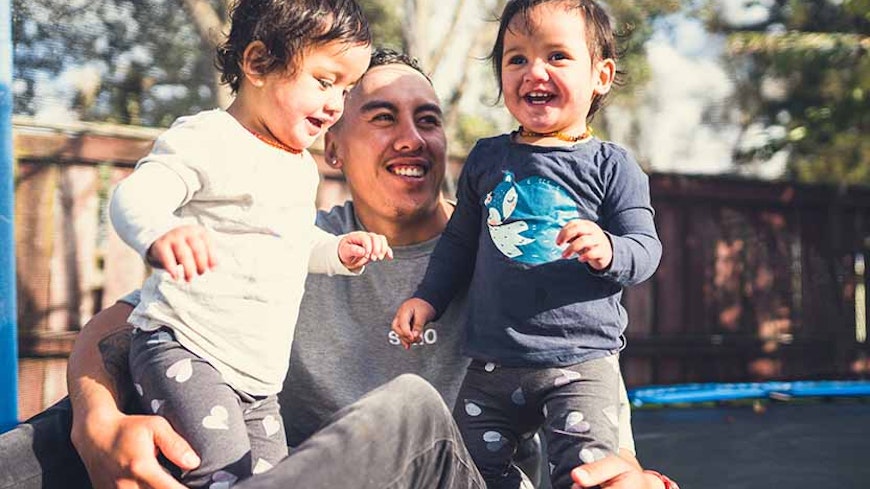Your mental health is as important as your physical health. When you need extra support, counselling is one of the most effective treatments but it can be a challenge to access. If you’re looking for a therapist, here’s our guide to help you navigate the system.
Need immediate help?
Consider one of the phone services (see a full list). To speak to a trained counsellor, call or text 1737 (or 0800 1737 1737). The free (and anonymous) Need To Talk service is available 24 hours a day, seven days a week. The counsellors will work with you to develop a plan and can refer you to help in your area.
If you or someone you know is considering suicide, specialist counsellors are available by calling the Suicide Crisis helpline on 0508 TAUTOKO (828 865). It's open 24/7.
If you or someone else is at immediate risk of hurting themselves, you can also call emergency services by dialling 111 and asking to speak to the police.
Will I have to pay for counselling?
Government-funded mental health services are available, though you may need to complete paperwork or get a referral from a doctor. You might also be able to access free or affordable care through your work or a local charity.
Mental Health Foundation chief executive Shaun Robinson said people seeking help could ask a friend or family member to assist them make calls and navigate the options. Here are the routes you can take:
GP referral

Government-funded mental health services are available - though you may need a referral from a doctor.
The public health system offers fully funded mental health care. Depending on how your needs are assessed, you might be offered an extended GP or nurse appointment, a brief intervention (a few sessions provided by a nurse, social worker or therapist) or longer term individual and group therapy. The availability of care varies from DHB to DHB. Often, you won’t get much say over who you see or for how long.
To go down this path, you’ll need a referral from your GP. Even if you can afford private therapy, the Royal New Zealand College of GPs medical director Bryan Betty said your family doctor should be your first port of call when you need help.
“GPs are very experienced in the field of mental health. Your GP will be across what services are available in your area. The relationship and trust you have with your GP, as your lifelong doctor, is really important,” he said.
If you don’t have a regular doctor, find your nearest medical practice online and give it a ring. Even if it’s not accepting patients, you’ll be pointed in the right direction.
Employee assistance programmes
Many larger workplaces have signed up for employee assistance programmes offered by independent providers, such as EAP Services, Raise, Clearhead or Workplace Support. A key benefit is free and confidential counselling sessions. You don’t need the problem to be work-related to qualify.
It’s worth checking if your employer is signed up to a service – there may be a link on your workplace’s intranet or information in your induction documents. The number of funded sessions is likely to be limited. You can contact the service directly to book an appointment.
ACC claims
If you need counselling after experiencing sexual violence, ACC will fund 14 hours of one-on-one therapy. However, you’ll need to book an appointment with a therapist registered with the agency – there’s a list at findsupport.co.nz – and demand in some areas can result in some claimants waiting months.
Once you’ve met, the therapist will submit a form to ACC, so the agency will cover the cost (even for the appointments you’ve already had). If you’re assessed as requiring longer-term care, ACC will continue to fund counselling sessions and provide other support.
If you’ve made an ACC claim for a physical injury that’s affecting your mental wellbeing, the agency might refer you to a therapist and fund 10 counselling sessions (or more if needed).
Work and Income support
Those with a long-term condition, such as depression or stress, can apply for the Disability Allowance. The $70.04 weekly payment can be put towards 10 counselling sessions (more if deemed necessary). However, your household income needs to be under certain thresholds. For example, couples are required to earn less than $56,812.60 annually to qualify.
You’ll need to complete a form – with sections filled out by your GP and counsellor – and make an appointment with Work and Income (unless you already receive payments from the agency) first. Work and Income won’t retroactively cover counselling sessions. To apply, visit workandincome.govt.nz.
Health insurance claims
Some health insurers will pay for certain mental health services under their basic insurance policies. For example, Southern Cross will pay up to $3500 for specialist hospital care and $750 for psychiatric consultations. UniMed offers up to $5000 for specialist hospital care.
Day-to-day counselling is typically only available if you have a premium plan – such as Southern Cross’ UltraCare – or buy an add-on package, such as Nib’s EveryDay Cover.
If the issue relates to a surgical or cancer claim, some plans chip in for counselling.
Charity, iwi and youth services

Some counselling services offer free or low-cost care for youth.
Non-profit groups may offer free or low-cost counselling services in your area. These range from major nationwide charities, including Presbyterian Support and Asian Family Services, to local groups, such as women’s refuges.
Some counselling services offer free or low-cost care for youth. Often these are small non-profits operating in one town (such as Te Tahi Youth in Christchurch or YOSS in Palmerston North), though Youthline has counselling centres in several cities.
Your GP or local Citizen’s Advice Bureau can point you towards this type of service in your region. The Citizen’s Advice Bureau Community Directory and the Family Services Directory both have searchable databases to help you find free or low-cost counsellors.
If you need specialist addiction support, the Alcohol Drug Helpline has a directory on its website.
Kaupapa Māori services often provide mental health and addiction support. Your local iwi will be able to point you in the right direction.
University students (excluding international students at some institutes) can access free support services on campus.
Helplines
Some national hotlines offer face-to-face or e-counselling services, which may be free or subsidised. Lifeline, which also runs the Suicide Crisis hotline, provides online and in-person counselling out of its Auckland centre.
Youthline counsellors are available for face-to-face, Skype and web chat sessions. 0800 What's Up is a free counselling helpline and webchat service for children and teenagers.
The 1737 hotline is for anyone feeling stressed, anxious, depressed or in need of advice – you don’t need to be at a crisis point to call.
Self-funded care
If you prefer to go direct, you can find a counsellor in the phone book or by searching online.
The New Zealand Association of Counsellors (NZAC) has a list of accredited counsellors on its website. Clearhead and Talking Works also have directories of professionals, and most have a detailed profile where you can learn about their qualifications, experience, fees and approach.
NZAC president Christine Macfarlane said many counsellors offer new clients a free phone chat, to get a feel for each other and the style of talk therapy.
When we surveyed private providers last year, we found the cost per session was on average $125 in Auckland, $132 in Wellington and $135 in Christchurch.
Psychologists (who undergo postgraduate training) typically had higher fees, ranging from $150 to $200 per session.
Even if you find the perfect fit right away, it’s worth seeing your GP if your mood is the issue – for example, you feel depressed or anxious. It's important for them to be aware of this.
Your therapy records
At your first appointment, you should be told about what happens with your therapy records or notes – from the type of information collected to who’ll have access (including government agencies). All counsellors, psychotherapists, psychologists, nurses and doctors are legally required to make this clear under privacy law.
Check how long your notes will be retained and how they’ll eventually be destroyed. You can ask to be notified when your records are wiped. If you switch providers, you’ll be asked to signed an informed consent so your documentation can be sent to your new therapist.
This may not be your highest priority at the beginning, but your therapist should always be open to discussing the safeguards surrounding your information.
Counsellor, therapist or doctor?
Mental health professionals have different qualifications and training. Some are regulated:
Counsellors provide what’s known as talk therapy to boost mental wellbeing. They might specialise in certain types – for example, cognitive behavioural therapy – and suggest lifestyle changes but can’t prescribe medication. They might have a qualification but aren’t required to by law. However, a counsellor accredited by NZAC or the New Zealand Christian Counsellors Association (NZCCA) must have a bachelor-level degree, diploma or certificate, a set amount of experience and must complete ongoing professional development. Ask about a counsellor’s industry memberships and experience before booking an appointment.
Psychotherapists provide a specific type of talk therapy – psychotherapy – that explores how early life experiences might impact current thoughts and behaviours, particularly those negatively affecting your life. They can’t prescribe medication. By law, psychotherapists must be registered with the Psychotherapists Board of Aotearoa New Zealand, which requires practitioners to complete a tertiary qualification or industry training and meet ongoing professional development requirements. When you sign up, ask to see the therapist’s annual practising certificate.

Mental health professionals have different qualifications and training.
Psychologists (like counsellors) use a range of talk therapy techniques to boost mental health. Although they might assist a client with a shorter-term issue, such as a stressful time in their life, they can also help with chronic issues, such as addiction and depression. They’re unable to prescribe medication. Only people registered with the New Zealand Psychologists Board – which requires at least a Master’s degree in the subject – can call themselves psychologists. They must complete ongoing professional development. Check your psychologist holds a current annual practising certificate.
Psychiatrists are registered medical doctors. As such, they diagnose and treat mental illness. They might prescribe medication, talk therapy and make lifestyle recommendations – the treatment might include separate sessions with a psychologist, psychotherapist or counsellor. They must complete medical school, undergo six years of psychiatric training, register with the New Zealand Medical Council as a specialist and complete ongoing professional development. You normally require a referral from your GP to see a psychiatrist.
Will talking really help me?
Talk therapies have been robustly tested in clinical trials. Some – such as cognitive behavioural therapy for youth anxiety or counselling for postnatal depression – have received the ultimate seal of approval: their effectiveness endorsed by the Cochrane Collaboration or US Preventive Services Task Force (independent organisations that systematically review healthcare).
However, counselling is just one tool to boost mental health. Medication can be just as effective – and may be faster-acting. There’s evidence the two treatments work better together than on their own for conditions such as depression.
Maintaining healthy lifestyle habits is a third key tool, which doctors and counsellors often encourage or you can introduce. According to the Mental Health Foundation, eating a balanced diet, staying active, learning new skills, volunteering, connecting with loved ones and taking notice (or practising mindfulness) all improve wellbeing and protect you against mental distress.
Will I have to wait for help?
Often people reach out for help as mental health issues peak. It’s at this point when people look for urgent assistance but the waiting times to access counselling or specialist care vary.

If faced with a long wait for counselling, ask your GP if the practice offers in-house counselling.
When we surveyed the profession, we found some private counsellors with an appointment available in just a few days’ time. However, most had a wait of between one to two weeks. Others wouldn’t be able to see a new client for at least two to three months.
Long waits – particularly for public care – were highlighted in the 2018 Government Inquiry into Mental Health and Addiction report. The inquiry panel heard the lack of available services (such as talk therapy) over-burdened specialist services, including inpatient facilities, and led to an over-reliance on medication.
One family member told the inquiry: “The awareness campaigns, as necessary as they are, now make me angry. ‘It’s OK to ask for help’ – that is a cruel and dishonest message to send to the public if you’re not going to provide the resources to provide that help.”
ACC-registered sexual violence counsellors typically had wait times of several months, our survey found. The agency said clients spend an average of seven weeks on a wait list, according to data from its support organisations. This was down from eight weeks in 2017, despite a steady increase in the number of claims.
ACC chief customer officer Emma Powell said: “Everyone working in the sector agrees current wait times need to improve. We have made some changes to our service requirements, such as enabling psychology interns and providers, with the appropriate qualifications, to provide support under close supervision and mentoring.
“We are continuing to focus efforts on meeting the growing demand for therapy providers but one of the challenges is that trauma therapy for sexual violence is a highly skilled profession, which requires years of study and work experience.”
If you find yourself faced with a long wait, you have options. Ask your GP if the practice offers in-house counselling or a rapid intervention service. Some counsellors run a wait list – allowing you to pick up an appointment at short notice if another client reschedules.
The helplines can provide an immediate source of support. Although these phone services can’t replicate in-person counselling, they may provide a much-needed ear and advice if you’re facing a lengthy wait.
Employee assistance programmes typically have shorter wait times. However, only the first few sessions will be funded – though extensions are possible (depending on your employer). After that, the counsellor might be able to take you as a patient but it’s likely to be on your dime.

The 2019 Budget included an extra $1.9 billion for mental health over four years.
Ms Macfarlane said seeking help through multiple avenues (for example, through employee assistance and publicly funded services) often comes at the cost of switching counsellors – a difficult task, if you’ve bonded with the first and need to start building that relationship again.
“It can be harder for the person seeking help,” she said.
Recognising when you need help is also key, whether it’s because you notice your mental health deteriorating or experience a stressful or traumatic event. A “she’ll be right” attitude could lead to a preventable personal crisis.
The 2019 Budget included an extra $1.9 billion for mental health over four years. Some of this cash will establish a new service putting mental health workers into doctors’ clinics, iwi health providers and health services. Suicide prevention, addiction treatment and the nurses in schools schemes also received a boost.
But as services have been long underfunded, experts, including Mr Robinson, said the extra money only allowed existing services to “catch up” with current demand, rather than providing the cash required for new initiatives. Although very supportive of the budget funding, Mr Robinson said further and ongoing investment was necessary.
What if I don’t click with my counsellor?
It’s very normal to switch counsellor or therapist, Ms Macfarlane said.
“It’s all about the connection between the person and the counsellor. You have to ask yourself: is this a person I can be open with? Counselling can be a difficult process at times. It can feel uncomfortable as we’re sometimes talking about challenging stuff we don’t usually talk about.”
Professional counsellors are aware of this and will be supportive if you prefer to see someone else, she said.
She encouraged anyone who didn’t click with their first counsellor to give others a try – rather than giving up.
“Please don’t think ‘I tried it and it didn’t work’. It may be that the first person you meet is not the one for you.”
If your issue involves unprofessional conduct, you can make a complaint. You can submit your concerns about any counsellor with NZAC membership by emailing the Ethics Secretary ([email protected]). For NZCCA members, complaints can be emailed to [email protected].
Complaints about psychotherapists, psychologists and doctors – including psychiatrists – should go to the Health and Disability Commissioner (HDC). There’s an online complaint form or you can contact the commission by email ([email protected]) or post.
You can get in touch with the regulatory bodies directly as well, though the organisations will need to conduct any investigations alongside the HDC’s. You can get in touch with the Psychotherapist Board by emailing [email protected]; the Psychologist Board through an online form; or the Medical Council by emailing [email protected].
List of helplines
Each year, 20,000 New Zealanders attempt to take their own life and 50,000 formulate a suicide plan. If you need help now, these services are available 24/7:
Need To Talk: 1737 (call or text)
Suicide Crisis: 0508 TAUTOKO (828 865)
Lifeline: 0800 543 354 or text 4357
Barnados 0800 Whatsup: 0800 942 8787
Depression Helpline: 0800 111 757 or text 4202
NZ Samaritans: 0800 726 666
Safe To Talk Sexual Harm Helpline: 0800 044 334 or text 4334
Alcohol Drug Helpline: 0800 787 797
Gambling Helpline: 0800 654 655 or text 8006
If one service is not available, please try another. You can also call 111 and ask for the police.
Other important numbers are:
Outline (trained LGBTIQ+ volunteers): 0800 688 5463 (6pm to 9pm)
Shine (for domestic violence help): 0508 744 633 (9am and 11pm)